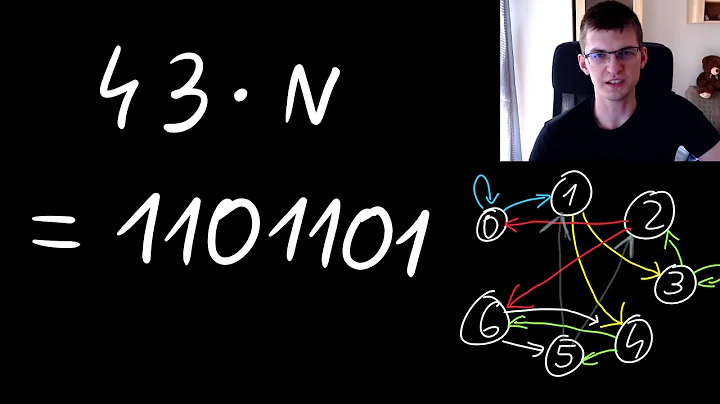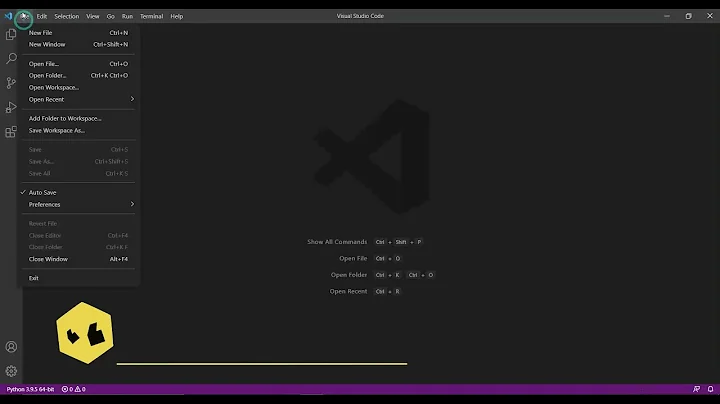Algorithm to generate all possible combinations of 0s & 1s, for any length of digits
Solution 1
You could just enumerate all numbers till 2^n - 1 in binary. That will leave you with the same combination.
n = 2 enumerate till 2^3 - 1 = 7
Convert to binary:
000 --> 0
001 --> 1
010 --> 2
011 --> 3
100 --> 4
101 --> 5
110 --> 6
111 --> 7
EDIT: Fixed the number of digits as well. This works
#include <stdio.h>
#define LENGTH 3
void print_binary(int n)
{
int bit = 1<<LENGTH - 1;
while ( bit ) {
printf("%d", n & bit ? 1 : 0);
bit >>= 1;
}
printf("\n");
}
int main(){
int n = 1<<LENGTH, i;
for(i=0;i<n;i++)
print_binary(i);
}
Solution 2
If you do not care about speed and memory, you cold use recursion which leads to a small and short solution:
public static void print01PermutationsUpToLength(final String currentString, final int upTo) {
if (upTo == 0) {
System.out.println(currentString);
return;
}
print01PermutationsUpToLength(currentString + "0", upTo - 1);
print01PermutationsUpToLength(currentString + "1", upTo - 1);
}
(java. Obviously, this could be done in every language which allows recursion and call-by-value or copy of String)
If you do not like the String argument, you could add a start function:
public static void print01PermutationsUpToLength(final int upTo) {
print01PermutationsUpToLength("", upTo);
}
results:
final int upToLength = 3;
print01PermutationsUpToLength(upToLength);
000
001
010
011
100
101
110
111
Formatting can be changed like you want, this was only to see the results better.
Ordering can be changed if you switch the parts of the String construction (currentString + "0").
Solution 3
void print_digit(int n,int digits)
{
int i;
for(i=0;i<digits;i++)
{
if(n&(1<<(digits-i-1)))
{
putchar('1');
}
else
{
putchar('0');
}
}
}
print all_digits(int e)
{
for(i=0;i<(1<<e);i++)
{
print_digit(i,e);
putchar('\n');
}
fflush(stdout);
}
Related videos on Youtube
Alfred
I am a Full Stack developer and a DevOps Engineer, who always to learn from, and contribute to, the technology community. I was a beginner in programming once. What all I had was pieces of scattered and crude knowledge (don't know if i can call it knowledge) then. Later, I joined for Master of Computer Applications in a college and there, I got a great teacher. It was her, who taught me when and where to use 'while' and 'for' loops even.What all knowledge I have now, and what all achievements I've made till now, is only because of her. Compared to her, I am ashes. Hats off my dear teacher Sonia Abraham, you are the best of your kind. Sonia Abraham is a professor of the Department of Computer Applications, M.A College of Engineering, Mahatma Gandhi University
Updated on September 11, 2022Comments
-
 Alfred over 1 year
Alfred over 1 yearI would like to know how can I print n number of combinations of 1s and 0s. The number of combinations,
nis user defined. The expected outputs are;n=1;
0,1n=2;
00,01,10,11n=3;
000,001,010,011,100,101,110,111etc.. etc..
The outputs will have
2^nnumber of combinations (where n is the number of expected digits in a single combination).How can I do this without using any built in function? The question is language independent and is for algorithm.
-
 Alfred about 11 yearswhy -1? the question is genuine and is 'on' topic
Alfred about 11 yearswhy -1? the question is genuine and is 'on' topic
-
-
 Alfred about 11 yearscan you please post an example, working in C without using any special built in function?
Alfred about 11 yearscan you please post an example, working in C without using any special built in function? -
 Alfred about 11 yearsif thats the case, i think 0,1,10,11 will be printed instead of 000,001,010 and 011
Alfred about 11 yearsif thats the case, i think 0,1,10,11 will be printed instead of 000,001,010 and 011 -
 thang about 11 yearsno it's not. you can pre-append 0 as needed to get the right length. you asked for an algorithm, he gave you an algorithm. why don't you just implement it yourself?!
thang about 11 yearsno it's not. you can pre-append 0 as needed to get the right length. you asked for an algorithm, he gave you an algorithm. why don't you just implement it yourself?! -
 thang about 11 yearsi don't think you need (e+1). just n is ok.
thang about 11 yearsi don't think you need (e+1). just n is ok. -
Luka Rahne about 11 yearse is like exponent. Input value is power like 3 or 4
-
 thang about 11 yearsreplace the first for loop with n=(1<<LENGTH);
thang about 11 yearsreplace the first for loop with n=(1<<LENGTH); -
 thang about 11 yearsyea but if all_digits(1) is called, you output twice as many strings as needed. i guess it's ok. just not what's asked.
thang about 11 yearsyea but if all_digits(1) is called, you output twice as many strings as needed. i guess it's ok. just not what's asked. -
Anirudh Ramanathan about 11 years@thang Much better :) Thanks.








